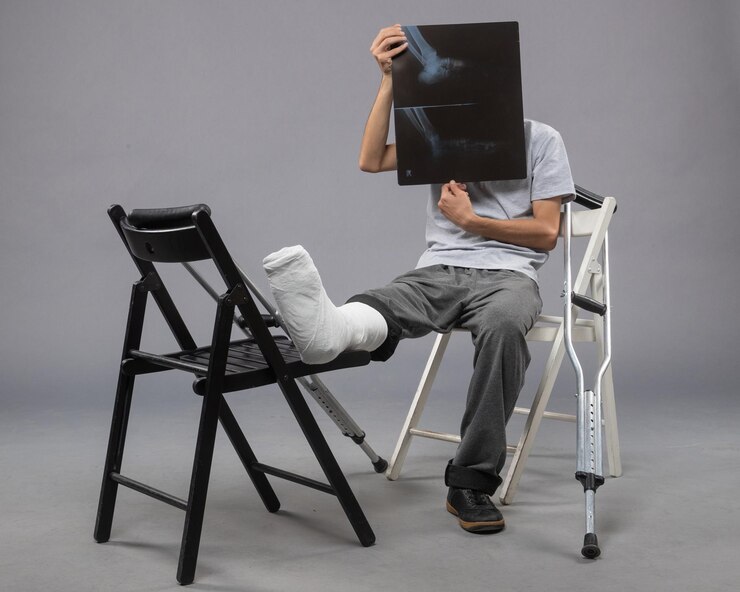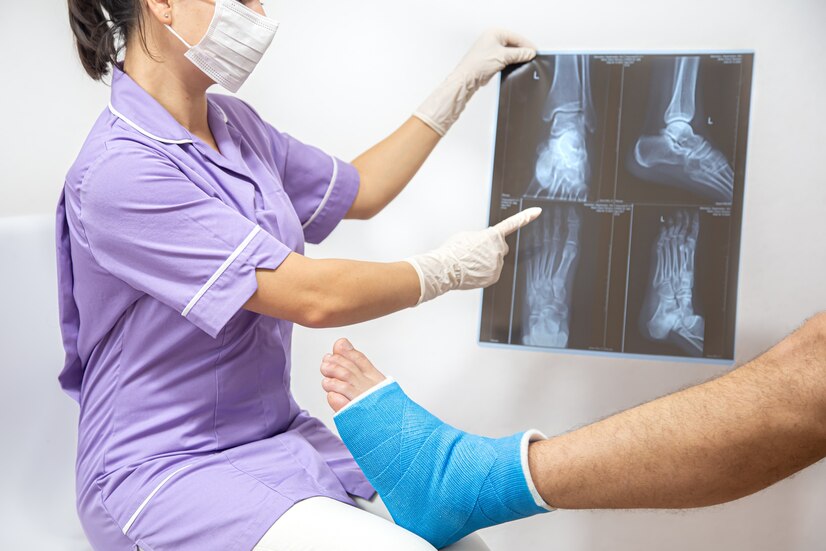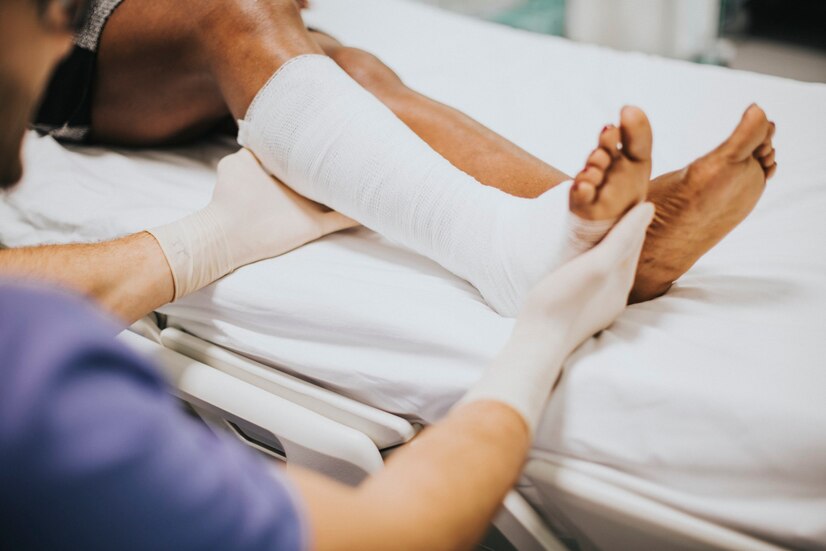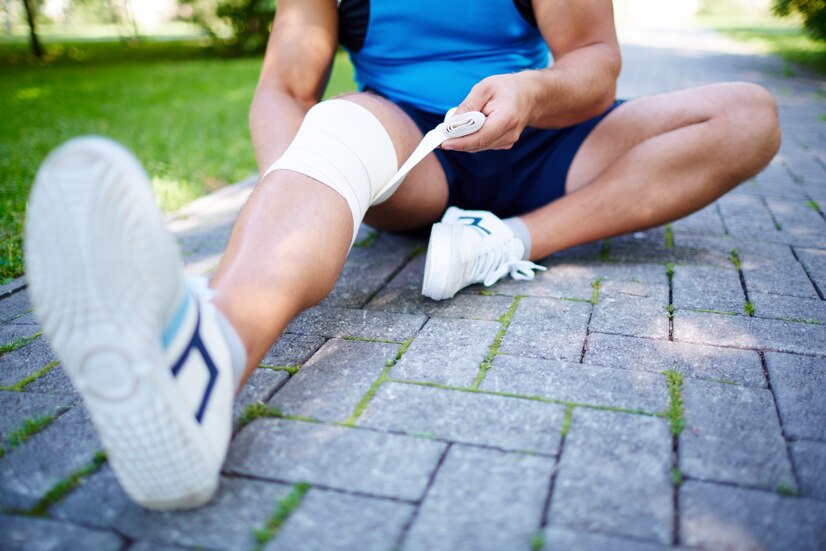
In Dallas, the road to justice for orthopedic injury victims can be paved with challenges. However, armed with expert tips, building a strong orthopedic injury lawsuit becomes more achievable in 2024. Whether you’ve suffered a bone fracture, joint dislocation, or a debilitating spinal injury, understanding the key components of a successful claim is essential.
This article provides invaluable insights from legal professionals who specialize in orthopedic injury lawsuits. From gathering crucial evidence to negotiating with insurance companies, these expert tips will empower you on your legal journey. With their guidance, you can navigate the complex legal landscape and ensure your rights are protected.
If you’re seeking justice for an orthopedic injury sustained in Dallas, it’s important to equip yourself with the necessary knowledge to build a solid case. By following the expert advice shared in this article, you will be well-prepared to face any challenges that may arise during the legal process. Remember, it’s never too early to start building a strong orthopedic injury lawsuit.
Building a strong orthopedic injury case is essential to maximize your chances of receiving fair and just compensation. A strong case not only increases the likelihood of a favorable settlement but also strengthens your position if the case goes to trial. To build a solid case, you need to gather compelling evidence, hire the right orthopedic injury lawyer, and consider key factors that can impact the outcome of your lawsuit.
By investing time and effort into building a strong case, you demonstrate to the defendant and their insurance company that you are serious about pursuing your claim. This can often lead to more favorable settlement offers and a higher likelihood of receiving fair compensation for your injuries, medical expenses, and other damages.
One of the most crucial aspects of building a strong orthopedic injury lawsuit is gathering compelling evidence. This evidence will help establish liability, prove the extent of your injuries, and demonstrate the impact on your life. The following types of evidence can be particularly valuable in strengthening your case:
1. Medical records: Obtain copies of all medical records related to your orthopedic injury, including diagnostic tests, treatment plans, and rehabilitation progress. These records provide objective evidence of your injuries and the medical expenses incurred.
2. Photographs and videos: Take photographs and videos of your injuries, the accident scene, and any hazardous conditions that contributed to your orthopedic injury. Visual evidence can be highly persuasive in demonstrating the severity of your injuries and the circumstances surrounding the incident.
3. Witness statements: If there were witnesses to the accident or incident that caused your orthopedic injury, gather their statements. Witness testimonies can provide additional support to your version of events and help establish liability.
4. Expert opinions: In complex orthopedic injury cases, it may be necessary to obtain expert opinions from medical professionals or accident reconstruction specialists. These experts can provide objective assessments of your injuries, the cause of the accident, and the long-term impact on your life.
By meticulously collecting and organizing relevant evidence, you strengthen your case and provide your orthopedic injury lawyer with the necessary materials to build a compelling argument on your behalf.

When it comes to building a strong orthopedic injury lawsuit, having the right legal representation is crucial. An experienced orthopedic injury lawyer can navigate the complexities of the legal system, negotiate with insurance companies, and advocate for your rights. Here are some key factors to consider when hiring an orthopedic injury lawyer:
1. Experience: Look for a lawyer who specializes in orthopedic injury cases and has a proven track record of success. Experienced lawyers understand the intricacies of these cases and can anticipate potential challenges.
2. Reputation: Research the lawyer’s reputation and read reviews from past clients. A reputable lawyer will have positive feedback and a strong professional reputation within the legal community.
3. Communication skills: Effective communication is essential when working with a lawyer. Choose a lawyer who listens to your concerns, explains the legal process in a clear manner, and keeps you updated on the progress of your case.
4. Resources: A well-established law firm with ample resources can provide the necessary support for your case. This includes access to expert witnesses, investigative teams, and the financial means to take your case to trial if needed.
By carefully selecting the right orthopedic injury lawyer, you enhance your chances of building a strong lawsuit and achieving a favorable outcome.

When building a strong orthopedic injury lawsuit, there are several key factors to consider. These factors can significantly impact the outcome of your case and the amount of compensation you receive. Here are some important considerations:
Orthopedic injury lawsuits involve seeking compensation for injuries that affect the musculoskeletal system, such as fractures, dislocations, or spinal injuries. These injuries can have a significant impact on a person’s physical and emotional well-being, often requiring extensive medical treatment and rehabilitation. To build a strong orthopedic injury lawsuit, it’s crucial to understand the legal principles and processes involved.
First and foremost, it’s important to establish the liability of the responsible party. This involves proving that the defendant’s negligence or intentional actions directly caused your orthopedic injury. In some cases, establishing liability may be straightforward, such as in a car accident where the other driver was clearly at fault. However, in other situations, such as slip and fall cases, proving liability can be more complex.
Creating a detailed timeline of events leading up to and following your orthopedic injury is crucial. This timeline should include the date, time, and location of the incident, as well as any relevant actions or conversations that occurred. A comprehensive timeline helps establish the sequence of events and strengthens your overall narrative.
When building a strong orthopedic injury lawsuit, one of the most crucial steps is documenting your injuries and medical treatment. This includes gathering all relevant medical records, X-rays, and MRI scans that provide a clear picture of the extent of your injuries. It’s important to consult with a medical professional who specializes in orthopedic injuries to ensure accurate diagnosis and treatment.
Additionally, it’s important to keep a detailed record of all medical expenses incurred as a result of your injury. This includes hospital bills, medication costs, rehabilitation expenses, and any other related costs. These records will help you accurately calculate the damages and losses you have suffered due to the injury.
When building a strong orthopedic injury lawsuit, one of the most critical pieces of evidence is witness statements and testimonies. Witnesses provide firsthand accounts of the incident, which can significantly strengthen your case. It’s important to promptly collect witness statements while their memories are still fresh.
Start by identifying potential witnesses who were present at the scene of the accident or have relevant information regarding your injury. Contact them and explain the importance of their testimony in supporting your claim. It’s crucial to document these statements in a concise and accurate manner, ensuring that all key details are captured.
Additionally, it’s essential to consider both eyewitnesses and expert witnesses. Eyewitnesses can provide a detailed account of what they saw, while expert witnesses, such as medical professionals or accident reconstruction experts, can provide specialized knowledge and opinions that can bolster your case. Be sure to gather contact information and credentials for these witnesses to facilitate further communication.
Remember, witness statements and testimonies can make a significant impact on your case. They can corroborate your version of events, establish liability, and demonstrate the severity of your injuries. By collecting strong and credible witness statements, you are building a solid foundation for your orthopedic injury lawsuit.

Calculating damages and losses is a key component of building a strong orthopedic injury lawsuit. It’s important to consider both economic and non-economic damages when determining the compensation you are entitled to. Economic damages include medical expenses, lost wages, and any other financial losses directly related to the injury.
Non-economic damages, on the other hand, include pain and suffering, emotional distress, loss of enjoyment of life, and any other intangible losses you have experienced as a result of the injury. Calculating non-economic damages can be more challenging, as they are subjective in nature. However, with the help of a skilled attorney, you can ensure that all relevant factors are considered to accurately assess the value of your claim.
By carefully considering these key factors and working closely with your orthopedic injury lawyer, you can build a solid case that reflects the full extent of your injuries and losses.
Building a strong orthopedic injury lawsuit in Dallas requires careful attention to detail, expert guidance, and thorough preparation. By documenting your injuries and medical treatment, collecting witness statements and testimonies, and calculating damages and losses, you can create a solid foundation for your case.
However, it’s important to remember that every orthopedic injury lawsuit is unique, and the specific steps and strategies may vary depending on the circumstances of your case. It’s always advisable to consult with an experienced attorney who specializes in orthopedic injury lawsuits to ensure you receive the best possible legal representation.
With the expert tips shared in this article, you now have a better understanding of what it takes to build a strong orthopedic injury lawsuit in Dallas in 2024. Armed with this knowledge, you can take the next steps with confidence, knowing that you are well-equipped to navigate the legal process and fight for the justice you deserve.
Remember, the road to justice may have its challenges, but with the right guidance and determination, you can overcome them and ensure your rights are protected. Start building your strong orthopedic injury lawsuit today and take the first step towards obtaining the compensation and justice you deserve.